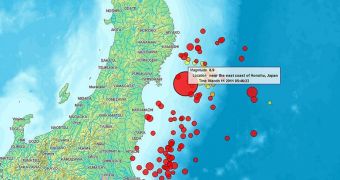It has been months since the disaster that hit Japan on March 10, 2011, but things are still far from restored, and they might never be, though Supermicro, among others, still tried to help in its own way.
It is too late to go back and save all the lives that were lost during the earthquake, and subsequent tsunamis, that assailed Japan back in early spring.
Still, the Japanese have proven to be a hardy folk, striving to recover from the aftermath as well as they could.
One of the things that the Japanese government was forced to set in place is a power distribution schedule, meaning that people don't have electricity all the time.
One thing that does not figure into this, however, is the network of data centers, since data services are more critical now than ever.
In other words, if the country is to see some energy efficiency improvements from that area, it is the server and data center makers that have to deliver it.
Supermicro is one of the companies that donated high-efficiency technologies, including a very efficient server for the Shinsai site.
More specifically, by using low-power Intel Xeon L5520 processors, among other things, it created high-efficiency (93%+) Gold Level SuperServer systems.
All the economic problems that forced technology to become greener are finally having a good effect for a change.
“Supermicro has close relations with many companies in Japan and the unfortunate tragedy on March 11 united our organizations in support of humanitarian relief efforts,” said Wally Liaw, Vice President of Sales, International.
“It was clear the best means of contribution to our partners and their local communities was through our server technology. With energy-efficiency being one of our engineering strengths, this too has long-term value in the resulting circumstances. Supermicro will continue our efforts to provide Japan and the global community with leading-edge technologies, placing power conservation and "Green IT" at the forefront of our computing solutions.”
Meanwhile, new disasters are plaguing Thailand, floods to be more precise (Western Digital was particularly badly hit).

 14 DAY TRIAL //
14 DAY TRIAL //